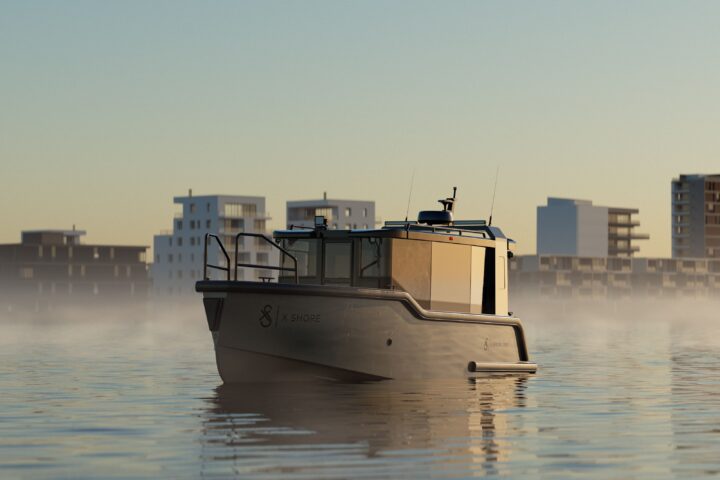Transportation stands for almost 25 % of EU’s Greenhouse gas emissions* and around 23 % of the total energy-related emissions worldwide**. With its high-tech electric road system, the Swedish company Elonroad are revolutionising electric charging and showing the future of electric driving.
Stopping to charge your car might soon be a thing of the past. In the future, electric cars might charge while driving on rails in the road. Elonroad wants to transform the charging infrastructure and is a part of the solution of lowering the emissions from the transport industry and meeting the goals set up in Agenda 2030. The charging infrastructure is designed for all-electric vehicles, such as cars, taxis, buses and trucks, that operate in urban and highway conditions.
In Lund, in the south of Sweden, this is already a reality. Together with Lund University, Elonroad is about to finalise the installation of a 1000-meter-long road where the technology is being tested out. The road is the first of its kind in an urban environment.
How it works
Elonroad has since 2012 developed rails that charge vehicles while they are driving or when they are parked on the rails. The rails, which can either be laid on top of the road or built into the road, are constructed in short segments so that they are powered one meter at the time and the rails are only activated when a vehicle is on them and for very short segments. When driving, a conductive pickup under the vehicle connects to the electric rail via sliding contacts.
This solution makes the Elonroad rails safe to place in urban environments and pedestrians can without danger cross the rails. The rail is powered by power stations located at the side of the road, which can deliver up to 300 kW with 97 % efficiency per vehicle while driving. The electricity used can be produced from renewable sources such as solar, wind and hydropower.
But Elonroad is not only ahead when it comes to decreasing emissions; their rails are equipped with IoT sensors and software that analyse data that are sent to the driver in real-time. As automotive vehicles become more common, the Elonroad technology can communicate dangers ahead to the vehicles, creating a safer and smarter experience.
A bright and clean future
By 2026, Elonroad believes that they will have the capacity to charge 20,700 electric vehicles, leading to a CO2 emissions reduction of 1.53 million tonnes CO2. By 2050, they expect to reduce CO2 emissions by 7.66 million tonnes CO2.
The project is expanding, and the next step is to look into the possibility of electrifying waste collection. The idea is that the waste disposal units will be charged while standing still on the electric road at suitable places. In that way, the batteries in the vehicles can be made smaller, which will decrease the weight and thus the electricity used.
Unique in its kind
Today, experiments with air-borne wires are conducted around Europe. By putting the electricity on the roads instead, different types of vehicles can use the charging roads. Longer segments of electric roads are also being tried out, but these are not suited to an urban environment due to the risks that pedestrians are being exposed to.
According to a study made by the Swedish National Road and Transport Research Institute (VTI), 860 kilometres of electric road is enough to reduce heavy traffic in Sweden by 30 %. In the cities, the technology can be used not only for cars but public transport, taxis and services such as waste collection.
Electric vehicles are without a doubt a part of the future. With Elonroad’s technology, the charging infrastructure can be made more efficient, greener and smarter.
Get in touch with Elonroad here.
* European Union (2020). Transport emissions. (External link)
** IPCC (2014). Transport. (External link)



